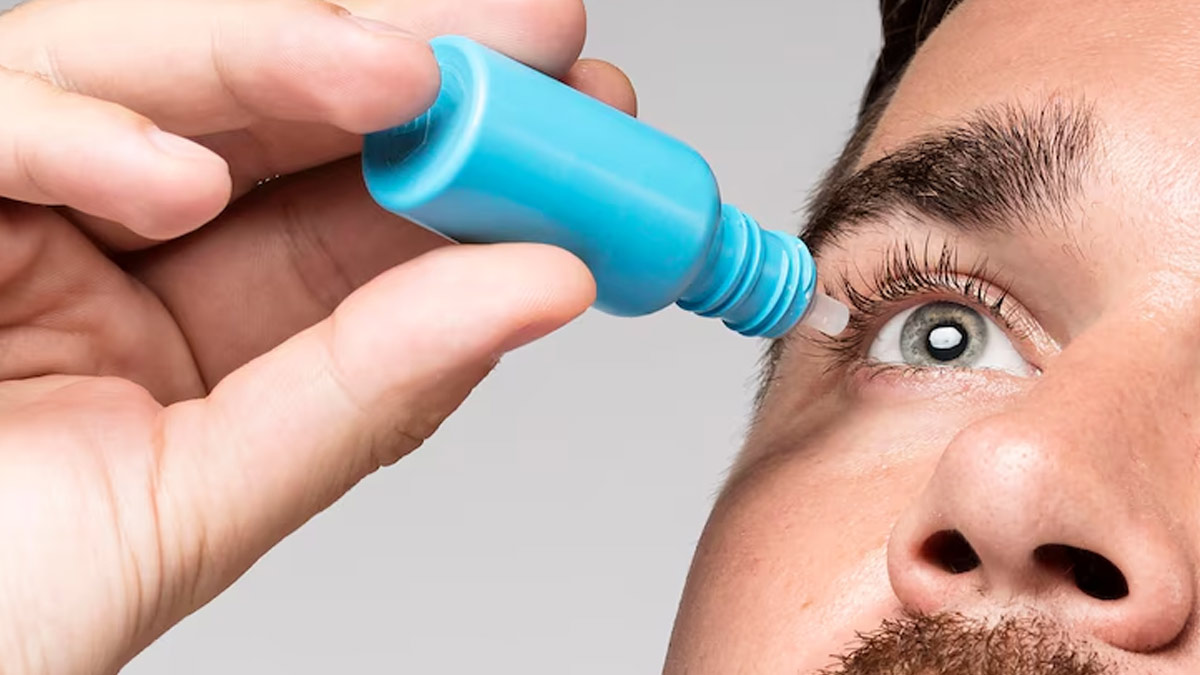
The Drug Controller General of India (DCGI) has suspended the manufacturing and marketing licence of PresVu eye drops, shortly after its initial approval. The decision was made following the company’s misleading promotional claims that positioned PresVu as a groundbreaking non-invasive solution for enhancing near vision, effectively replacing reading glasses within minutes.
Table of Content:-
Unapproved Claims and Regulatory Intervention
Entod Pharmaceuticals, the developer of the eye drops, had marketed PresVu as India’s first eye drop capable of reducing dependency on reading glasses and improving near vision within 15 minutes. However, the DCGI clarified that while the drop was approved for treating presbyopia, it was not approved for such broad and exaggerated claims. The regulator pointed out that these statements were not only unsubstantiated but also potentially misleading to the general public.
The suspension order cited Entod’s failure to adequately address the queries raised by the regulatory body. The DCGI’s statement emphasised that no approval had been granted for PresVu’s advertised capabilities, and there was concern that the misleading promotions could mislead consumers. Consequently, in the interest of public safety, the regulator suspended the product’s licence until further notice.

Pilocarpine Hydrochloride: The Drug Behind PresVu
The active ingredient in PresVu, Pilocarpine Hydrochloride, has a long history of use in eye care, primarily as a treatment for glaucoma and, in some instances, cataract management. Pilocarpine is known to help with presbyopia—a condition associated with ageing that affects the eye’s ability to focus on close objects—by contracting the iris muscles to improve focus. However, this is not a new or revolutionary treatment, and it certainly does not eliminate the need for reading glasses in the way Entod claimed.
Also read: Eye Drops Or Laser Surgery? Expert Explains Which Is A Better Treatment For Glaucoma
Several studies have explored Pilocarpine’s efficacy in treating presbyopia. For instance, a study published in the Journal of Ophthalmology found that Pilocarpine could improve near vision in patients with presbyopia, but the effect was temporary and came with potential side effects such as eye strain and reduced distance vision. Other studies have highlighted the drug’s limitations and emphasised the importance of setting realistic expectations for patients using Pilocarpine-based treatments.

Entod’s Response and Defence
In response to the suspension, Entod Pharmaceuticals announced its intention to challenge the DCGI’s order. The company argued that its promotional material was crafted to simplify technical terms for a broader audience and that such practices were common in the industry. Nikkhil Masurkar, CEO of Entod Pharmaceuticals, stated, “Our press release aimed to describe the drug’s application in more accessible terms, but the response from the media and public went beyond our control.”
The company defended its position, stating that there are no other eye drops currently approved in India specifically for presbyopia, thereby justifying its claim of being the first of its kind. Entod also pointed to clinical trials where subjects using the eye drops did not require reading glasses, arguing that their claims were based on actual evaluations, albeit not explicitly approved by the DCGI.

Also read: How To Reduce Redness In Your Eyes Upon Waking Up
Lessons in Regulatory Compliance and Public Safety
This incident underscores the critical role of regulatory bodies in monitoring pharmaceutical claims to ensure they are backed by scientific evidence. Misleading promotions can have significant implications, especially when they involve health products that directly impact public perception and safety. The suspension of PresVu serves as a cautionary tale for pharmaceutical companies to adhere strictly to approved indications and maintain transparency in their communications.
As Entod Pharmaceuticals prepares to contest the suspension, the broader discussion about the accuracy of medical claims in marketing remains crucial. The DCGI’s decisive action reflects a commitment to upholding public trust and ensuring that pharmaceutical products meet the highest standards of safety and efficacy before reaching consumers. For now, PresVu’s manufacturing and marketing remain on hold, awaiting further regulatory review.
Also watch this video
How we keep this article up to date:
We work with experts and keep a close eye on the latest in health and wellness. Whenever there is a new research or helpful information, we update our articles with accurate and useful advice.
Current Version